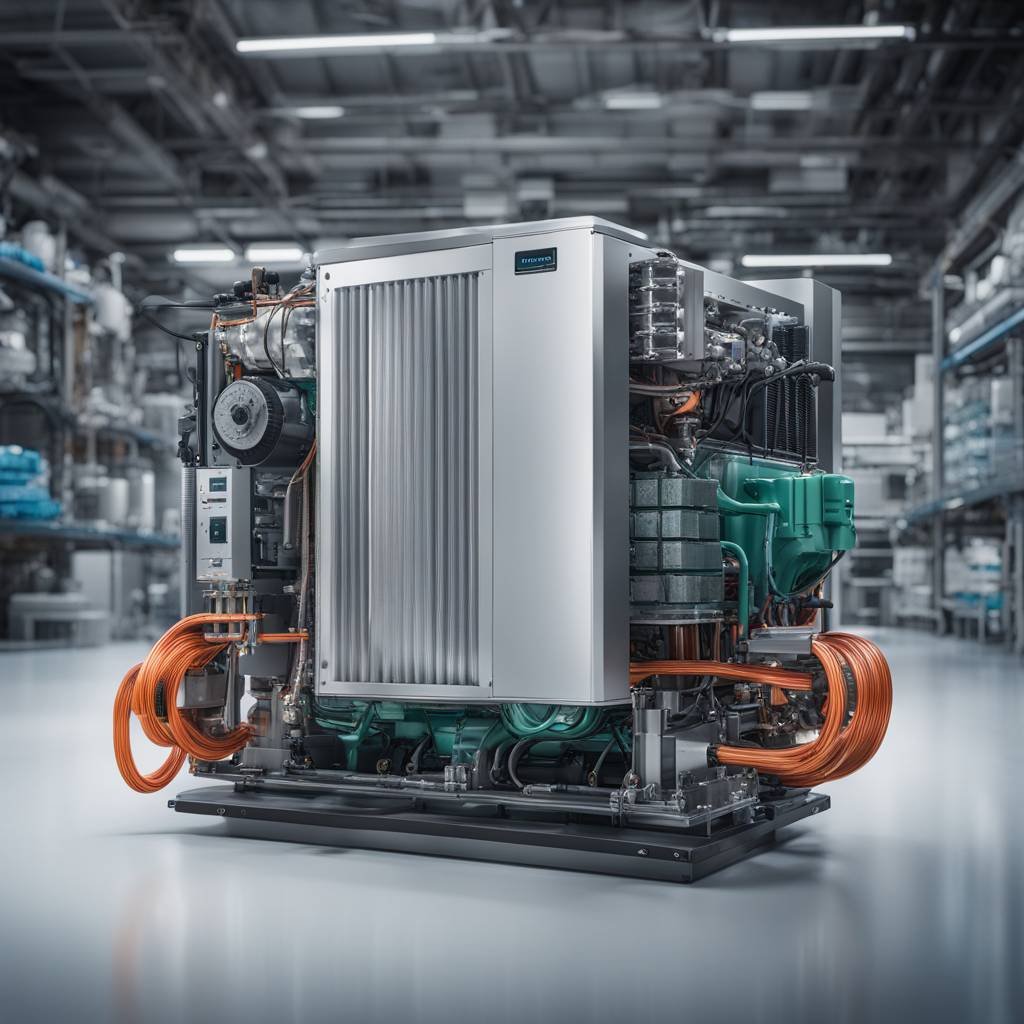Summary
– Hofer Powertrain collaborates with ETH Zurich to develop a three-level GaN traction inverter
– The project is funded by Innosuisse, the Swiss Agency of Innovation Promotion
– Hofer Powertrain has been working on advanced power electronics using GaN chip technology for four years
– The new project aims to produce an inverter with novel modulation scheme, high switching frequencies, and additional features
– The project will be supervised by Professor Johann Biela and Dr. Lukasz Roslaniec, aiming to advance electric vehicle adoption and sustainability.
Article
Hofer Powertrain, a Germany-based EV powertrain manufacturer, has initiated a research project in partnership with the Swiss Federal Institute of Technology in Zurich (ETH Zurich) to develop a three-level gallium nitride (GaN) traction inverter. This innovative inverter will utilize adaptive gate drivers to reduce switching losses, resulting in improved efficiency. The project is being funded by Innosuisse, the Swiss Agency of Innovation Promotion, and represents a continuation of Hofer Powertrain’s advancements in multilevel power electronics using GaN chip technology.
Over the past four years, Hofer Powertrain has made significant progress in the development of advanced power electronics with GaN chip technology. Their work has led to the creation of 800 V GaN inverters that offer enhanced efficiency and power density compared to silicon-based systems. Building on this success, the new project with ETH Zurich aims to create an inverter that incorporates a novel modulation scheme, operates at high switching frequencies, and includes additional innovative features that the company has been working on. This collaboration represents a significant step forward in the development of cutting-edge electric vehicle technology.
The research project will be overseen by Professor Johann Biela from ETH Zurich and Dr. Lukasz Roslaniec, the Division Lead of Power Electronics at Hofer Powertrain. Dr. Roslaniec expressed confidence in the partnership, stating that they believe it will result in technologically advanced solutions that are also financially accessible. By pushing the boundaries of electric vehicle technology and promoting environmental sustainability, the collaboration between Hofer Powertrain and ETH Zurich aims to accelerate the adoption of electric vehicles and contribute to a cleaner, more sustainable future.
Through their collaboration with ETH Zurich, Hofer Powertrain is leveraging their expertise in GaN chip technology to develop a cutting-edge traction inverter for electric vehicles. By utilizing adaptive gate drivers and lower switching losses, the new inverter will offer improved efficiency and power density. With support from Innosuisse, the Swiss Agency of Innovation Promotion, the research project aims to further advance the capabilities of GaN-based power electronics and create solutions that drive the adoption of electric vehicles.
Professor Johann Biela from ETH Zurich and Dr. Lukasz Roslaniec of Hofer Powertrain are leading the project, which seeks to develop an inverter with a novel modulation scheme, high switching frequencies, and additional innovative features. The partnership between the two organizations is focused on not only advancing technology but also making these advancements financially accessible. By working together, they hope to accelerate the adoption of electric vehicles and contribute to environmental sustainability through the development of cutting-edge technology for electric vehicles.
Overall, the collaboration between Hofer Powertrain and ETH Zurich represents an important step forward in the development of electric vehicle technology. By combining their expertise in GaN chip technology and power electronics, the two organizations are working towards creating solutions that will push the boundaries of electric vehicle efficiency and sustainability. With the support of funding from Innosuisse, the research project aims to drive innovation in the electric vehicle industry and pave the way for a cleaner, more sustainable future.
Read the full article here


